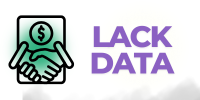The landscape of Country Code Top-Level Domains (ccTLDs) is dynamic, constantly evolving in response to technological advancements, geopolitical shifts, and changing user behaviors. As the digital age progresses, ccTLDs face both exciting new opportunities and significant challenges.
One major trend increasing
(IDNs). IDNs allow domain names to be registered and displayed in local scripts and characters (e.g., Arabic, Cyrillic, Chinese), rather than being limited to the Latin alphabet. Many ccTLDs are actively implementing IDN support, which is crucial for digital inclusivity and enabling users in non-Latin script speaking countries to fully participate in the internet in their native languages. This development is vital for the continued global expansion of the internet.
Another challenge is the ongoing tension between global interoperability and national sovereignty. While each ccTLD registry has autonomy, there are growing debates about how to balance national laws and policies with the global nature of the internet. Issues such as data privacy regulations (like GDPR in Europe), content censorship, and cybers asia mobile number list ecurity threats require careful coordination between national registries and international bodies like ICANN. The ability to navigate these complex legal and ethical landscapes will define the future of ccTLD governance.
The rise of new generic TLDs
(gTLDs), such as .app, .shop, or .xyz, also presents both competition and opportunities. While some might argue that these new gTLDs could dilute the import how to master business email database in 2025 ance of ccTLDs, they also push ccTLDs to innovate and highlight their unique value proposition of geographical relevance and local trust. Some ccTLDs might find new niches or collaborative opport b2b reviews unities with gTLDs.
